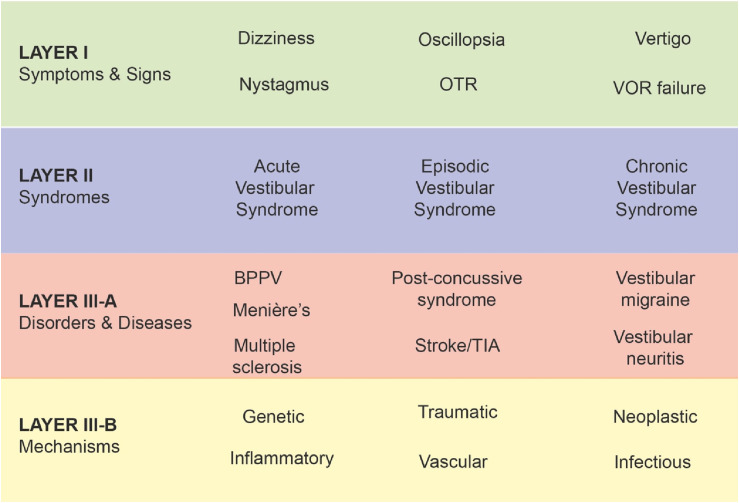The International Classification of Vestibular Disorders: Achievements, challenges, and future directions.
IF 3.3
3区 医学
Q2 NEUROSCIENCES
Journal of Vestibular Research-Equilibrium & Orientation
Pub Date : 2025-05-01
Epub Date: 2025-01-08
DOI:10.1177/09574271251313803
引用次数: 0
Abstract
In 2007, the Bárány Society embarked on a project to establish definitions of vestibular syndromes and disorders based on best available evidence, referred to as the International Classification of Vestibular Disorders (ICVD). Since then, numerous publications providing consensus-driven diagnostic criteria for vestibular symptoms, syndromes, and disorders have been published. Here, we reflect on the rationale for developing the ICVD as well as its subsequent achievements, challenges, and outlook. In this summary of the work of the ICVD to date, the authors will focus on practical aspects to help improve the utility and applicability of these diagnostic criteria moving forward.

前庭疾病国际分类:成就、挑战和未来方向。
2007年,Bárány学会启动了一个项目,根据现有的最佳证据,建立前庭综合征和疾病的定义,称为国际前庭疾病分类(ICVD)。从那时起,发表了许多出版物,为前庭症状、综合征和疾病提供了共识驱动的诊断标准。在这里,我们反思了制定ICVD的基本原理以及随后的成就、挑战和展望。在ICVD迄今为止的工作总结中,作者将重点放在实际方面,以帮助提高这些诊断标准的实用性和适用性。
本文章由计算机程序翻译,如有差异,请以英文原文为准。
求助全文
约1分钟内获得全文
求助全文
来源期刊
CiteScore
5.00
自引率
4.30%
发文量
66
审稿时长
>12 weeks
期刊介绍:
Journal of Vestibular Research is a peer-reviewed journal that publishes experimental and observational studies, review papers, and theoretical papers based on current knowledge of the vestibular system. Subjects of the studies can include experimental animals, normal humans, and humans with vestibular or other related disorders. Study topics can include the following:
Anatomy of the vestibular system, including vestibulo-ocular, vestibulo-spinal, and vestibulo-autonomic pathways
Balance disorders
Neurochemistry and neuropharmacology of balance, both at the systems and single neuron level
Neurophysiology of balance, including the vestibular, ocular motor, autonomic, and postural control systems
Psychophysics of spatial orientation
Space and motion sickness
Vestibular rehabilitation
Vestibular-related human performance in various environments

 求助内容:
求助内容: 应助结果提醒方式:
应助结果提醒方式:


